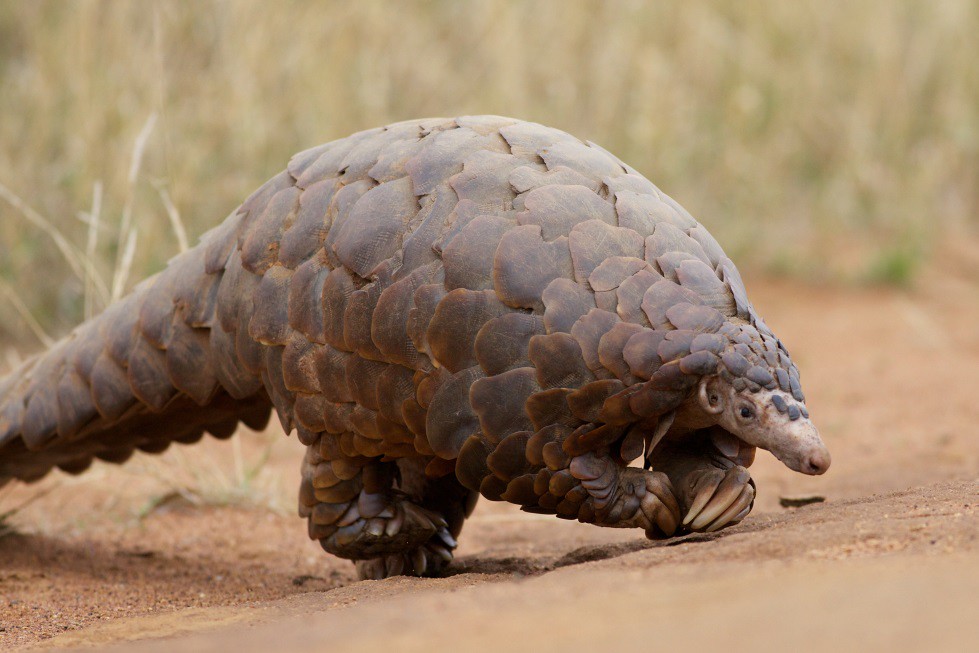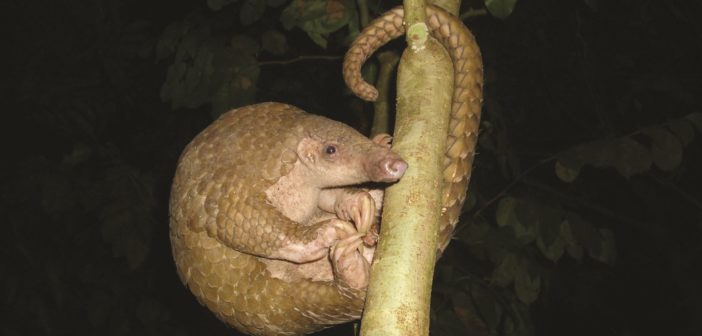Three species of pangolins have moved into a higher category of threat due to the growing impacts of habitat loss, poaching and illegal trade.
Two African species, the giant ground pangolin (Smutsia gigantea) and the white-bellied pangolin (Phataginus tricuspis) have been reclassified from vulnerable to endangered on the International Union for Conservation of Nature (IUCN) Red List of Threatened Species.
One Asian species, the Philippine pangolin (Manis culionensis), has been reclassified from endangered to critically endangered.
The Red List is a global inventory of the conservation status of the planets’ various organisms, and these upgraded threat ratings are a concerning development, emphasizing the perilous state of the world’s eight pangolin species.

This news comes as the massive industrial-scale exploitation of pangolins continues unabated. The IUCN cites information that between 2015-19, more than 400,000 African pangolins have been seized in trade.
In 2019 to date, Environmental Investigation Agency (EIA) has logged (from publicly available sources) 15 large-scale pangolin scale seizures around the world with a total weight of 76 metric tons, 14 of which weighed over a metric ton. The majority of shipments originated in Africa and were seized in South-East or East Asia, where scales are used in traditional Chinese medicine.
The updated IUCN assessment for the white-bellied and giant pangolins concludes that habitat loss, poaching and transnational trafficking from Africa to Asia are the three major drivers of population decline. It specifically highlights the role of weak law enforcement and a lack of effective demand reduction in consumer countries for driving pangolin over-exploitation. Growing Chinese investment in West and Central Africa is suggested to be facilitating trafficking.

The IUCN estimates that giant ground pangolin populations have declined 50 percent between 1974 and 2019, while white-bellied pangolin populations are expected to decline by 50 percent and the Philippine pangolin by more than 80 percent between 2012-33.
While the two other African pangolin species – the black-bellied (Phataginus tetradactyla) and Temminck’s (Smutsia temminckii) – have remained in the vulnerable category of the Red List, they are still expected to experience severe population declines. This also applies to the Chinese (Manis pentadactyla), Sunda (Manis javanica) and Indian (Manis crassicaudata) pangolins. Current trends in deforestation, particularly in West Africa, are expected to have a significant impact on black-bellied pangolins since they live entirely in trees.
Chris Hamley, our Senior Pangolin Campaigner, said: “This latest news confirms that far more meaningful action is required from governments to eliminate demand and end the supply of pangolin scales.
“Almost all large-scale shipments of pangolin scales seized have been destined for China. A dramatic and sustained reduction in the consumption of traditional Chinese medicines containing pangolin scales is an absolutely necessity if we are to save the world’s only scaly mammals from extinction.”
Featured image: the Philippine pangolin has recently been reclassified as critically endangered. Image credit USAID Asia, CC BY-SA 2.0.





